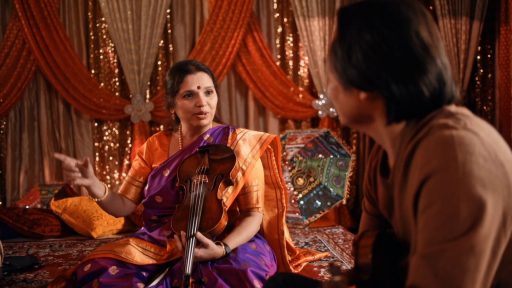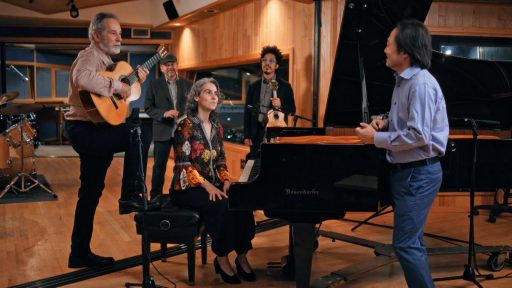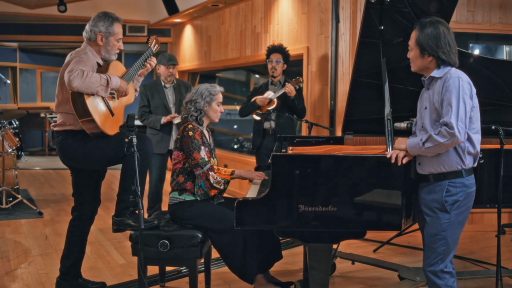Great Performances spoke with Reena Esmail and Sergio Assad, two talented composers featured in this season of Now Hear This. Read about what inspires them, how they derive inspiration from their immigrant roots and more below. Then, catch these incredible artists in Now Hear This “New American Voices,” premiering on PBS.
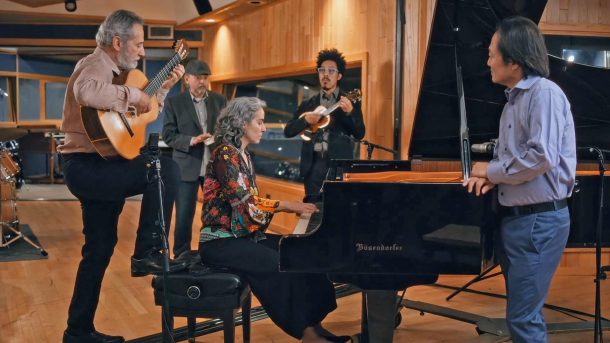
Sergio Assad with daughter Clarice Assad and musicians with Scott Yoo. Photo Credit: Arcos Film & Music.
What instrument inspires you most and why?
Sergio Assad: Still the classical guitar! After more than 50 years of playing the guitar, I still discover new possibilities in this multifaceted instrument. It is an instrument in evolution, and new interpreters as well as innovative luthiers continue to enlarge the capabilities and art of the classical guitar.
Reena Esmail: I’ve always loved the violin. I only started studying it in earnest when I was 24, many years after I had decided to be a composer. But I often wonder, if I’d started earlier, if I would have become a violinist. I think that’s why I write so much music for violin – I’m always longing to be closer to the instrument.
Also, I adore the English horn – it has such a uniquely beautiful sound. Nothing quite expresses the feeling of yearning like the English horn does.
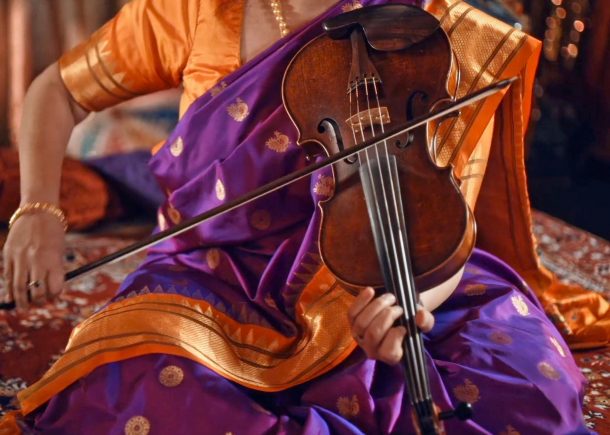
How would you say your background inspires your music?
SA: I was born in Brazil, a country rich in diverse musical manifestations. I have lived in this Brazilian music environment during my forming years. This experience is still an influence on my composition style. Everything I write, however distant it may be from Brazilian music, is brushed with Brazilian colors.
RE: My background gave me the gift of multiple perspectives. I grew up in America, but in an Indian family. My father is Muslim and my mother is Catholic. Growing up in Studio City, Calif., I was as familiar with being inside homes of celebrities as I was with people experiencing homelessness and poverty.
I love that my work as a composer allows me to create an avenue to bring people together who might not otherwise meet. Whether it’s Indian and Western classical musicians, to professional and community musicians, I love creating works that connect people to one another and plant the seeds for deeper relationships between them.
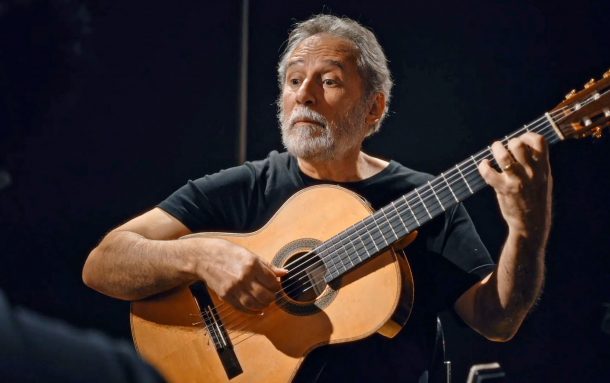
What artist/song have you been listening to lately?
SA: I have always enjoyed listening to most styles of music, from Tom Jobim to Igor Stravinsky, including other favorites such as Bach, Ravel, Mahler, Gershwin, Coltrane, the Beatles among many, many others. Although they are completely different musical manifestations, they all have their value fulfill their social role.
RE: I’ve been listening to a lot of Kala Ramnath’s recordings. We just worked on a new violin concerto together with Seattle Symphony, and it’s been amazing to get inside her mind and her style.
Also, I’ve been obsessed with the song “I Know The End” by Phoebe Bridgers. Every time I listen to it, I hear something different – sometimes it’s a new sound, and other times the words take on new meaning. It fascinates me on so many levels.
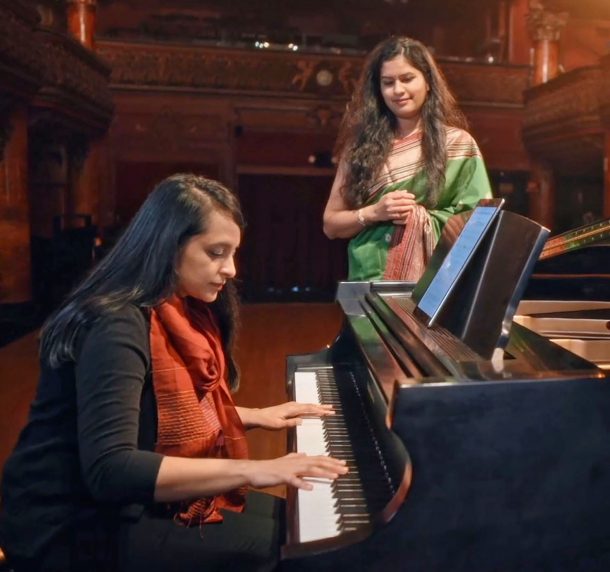
Who is your favorite composer?
SA: It is difficult to choose just one composer among the many that I admire, but if I had to choose the music I would like to have written, it would have been Maurice Ravel’s music. Ravel’s music remains modern and appealing in today’s world, despite the fact that he kept a foot in the music of his past. His music expresses many feelings, is exquisite, and intellectually stimulating.
RE: I remember the first time I heard the music of Bela Bartok. I was a teenager, driving down the freeway in Los Angeles, and one of his string quartets came on the radio. I had never heard it before, but I felt like I could understand it intuitively – I felt like I could “finish his sentences,” musically speaking. As I got to know Bartok’s work over the years, it was a great inspiration to me in my own journey, processing the music of my own cultural heritage through the lens of Western classical music.

